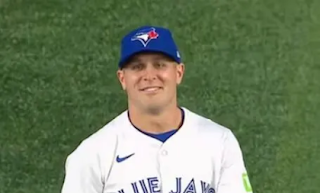The recent spate of school deaths claimed another life after a Princeton University undergraduate student, just weeks away from completing his junior year, died recently. This prompted renewed conversation about how Ivy League schools handle mental health crises on campus.
Lauren Blackburn, 23, was an English major and creative writing minor from Indiana. He was missing for several days before authorities found him deceased in a lake. Officials have not released his cause of death or said if there was any foul play involved.
Blackburn was the third Princeton undergraduate student to die in two years and the eighth since 2021. Six of those deaths were determined to be suicides, as The Princetonian first reported.
Princeton Professor Yiyun Li, who directs the university's creative writing program, lost both of her sons to suicide, one of whom, James Li, was a Princeton student when he died in 2024.
"What can parents do but give their children the space to be, and allow them to do what they need so that they can become more fully themselves?" Yiyun Li wrote in a New Yorker essay titled "The Deaths — And Lives — of Two Sons" published on 23 March.
"And yet, despite the parents’ efforts, and despite all the beings and doings that occur as the children grow, some among them die before their time. Children die, and they are not happy. And their parents can never know whether those children died because they were not happy, or whether they were not happy because they sensed, too early, that they must face their own deaths."
While mental health crises and suicides are not unique to Princeton, or Ivy League schools generally, experts say Ivy League students face distinct challenges and pressures while attending the country’s most prestigious schools. Experts also say Ivy League institutions should be dedicating more funds to mental health resources than they do currently.
"I think it comes down to the demands, and I would say almost 100% of the time, the Ivy League schools have really high rigorous demands," Ivy Ellis, certified mental health therapist and Licensed Clinical Social Worker (LCSW) who regularly works with college students, told Fox News Digital.
"Whereas at other universities, the demands can be lower in terms of just how much schoolwork is asked, like how many classes they have to take, how much homework they have, how many tests they have."
Ellis added her belief that while Ivy League schools do "care" about their students, "There's limited funding and limited resources that go towards mental health."
"So almost all the universities and Ivy League schools have counseling centers in place, and I know they're excellent, excellent counselors," she said. "They work really hard. There's just such a high number of students that need that support, and the number of counselors just doesn't really meet that level of support."






















